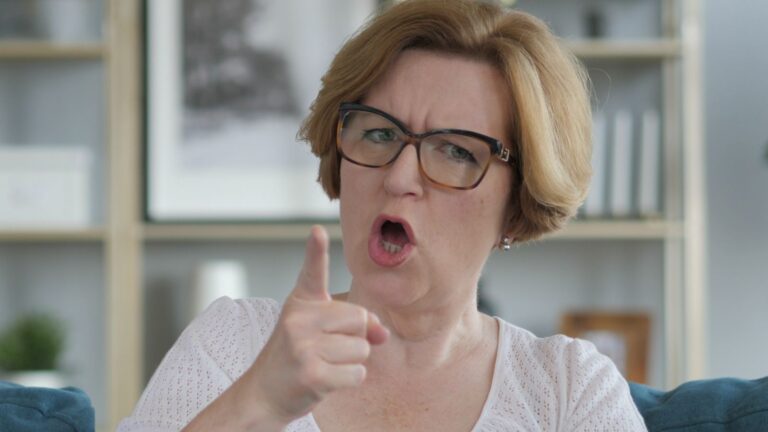As we age, our likes and dislikes change. Interestingly, there are certain things that particularly irritate the older generation while leaving others indifferent. This article delves into 18 specific modern issues that seem to bother older people, shedding light on the generational differences in perspectives and preferences.
The Disappearance of “Thank You” Cards

“The tradition of thank-you letter writing is still very much alive among the over-sixties,” as per The Spectator. Anyone younger than that probably doesn’t send out thank you cards, much to the older generation’s dismay. Old people value handwritten cards over digital messages and dislike their disappearance.
Social Media Saturation

The older generation also seems to feel some discomfort with the pervasive nature of social media. They have concerns about privacy and the authenticity of online interactions. Old people are not fond of the shift from personal, direct communication to digital platforms, either.
Distressed Jeans

The younger generation seems to favor distressed, ripped, and faded jeans—both for fashion and comfort purposes. However, old people seem to really dislike this trend, viewing the jeans as unnecessarily shabby. To older people, jeans signify durability, not style.
The Superfood Revolution

As explained by Healthline, “The food industry bestows the superfood label on nutrient-rich foods with a supposed capacity to positively affect health.” However, old people seem to have a preference for traditional vegetables like peas and carrots over modern superfoods like kale and quinoa, which younger generations seem to love.
Texting

Once upon a time, phone calls were the norm. If you couldn’t get a hold of someone, you’d leave them a voicemail. Nowadays, however, the use of voicemail is fading and text messages are more common than ever. Old people seem to dislike this shift from audio to text-based communication.
Coffee Complexity

Coffee was once enjoyed in the simplest of forms, whereas nowadays we have an endless list of complex coffee drinks available to us, from oat-milk iced lattes to caramel frappuccinos. The emergence of elaborate coffee varieties and preferences seems to have caused a generational divide.
Multiple Passwords

In contrast with the simpler security methods of the past, old people find themselves frustrated with the need for complex, multiple passwords. According to Tech.co, “The one truly safe solution is to have a different password for each and every account.” While younger people are used to this, to older generations, it can feel like a digital memory game.
Multiple Remote Controls

Likewise, older people dislike the fact that there are multiple remotes for various devices around the house—such as for the AC, the TV, the garage door, and more. They often feel nostalgic for the simplicity of a single remote and are frustrated with all the technological advancements in homes.
Cashless Transactions

It’s not uncommon for restaurants, shops, and other businesses to refuse cash and request card payments these days. However, old people have a preference for tangible money-handling experiences. They’re resistant to the shift toward cashless transactions and feel an emotional connection to traditional money.
Electronics

While older people can appreciate some electronics and the benefits they provide, they dislike the dependency that some people have on them, along with the need to stay on top of charging multiple everyday devices. This is a stark difference to the younger generation’s perspective on the convenience of technology.
Subscription Boxes

According to Forbes, the global subscription e-commerce market size is expected to reach $904.2 billion by 2026. If this doesn’t show you how popular subscription boxes are, nothing will. Older people, however, aren’t keen on the idea of subscriptions, preferring to do their own picking and choosing.
Reality TV

Reality TV is incredibly popular among various age groups these days—but unfortunately, not the older groups. They feel skepticism toward the authenticity of reality TV, comparing modern reality shows with classic soap operas. Unlike most people, they’re not happy with the evolution of television entertainment.
Online Dating

Increasing numbers of couples are meeting on dating sites and apps these days, but old people seem to dislike this. They’re skeptical about it and find it a sad contrast with traditional dating practices, not understanding the generational differences in how people find love.
Digital Conversations

While most people embrace the convenience and connectivity that digital conversations bring, the older generation views it as a decline in meaningful, in-depth conversations. They value face-to-face communication over digital interaction and think the digital aspect ruins the art of conversation.
Casual Sleepwear

The younger generation has a very casual approach to sleepwear, typically going to bed in sweats and a ratty old t-shirt. Older generations, however, have a preference for traditional, matching sleepwear sets. They’re not fond of the changing norms.
Technological Changes

Younger people tend to be excited by new innovations in technology, but old people often have difficulty keeping up with the rapid pace of technological advancements. They prefer the simpler, more stable technology of the past and feel overwhelmed by the constant need to adapt to new technologies.
Casual Attire in Business Settings

As time goes on, more businesses are allowing their employees to dress casually, or at least semi-casually, when coming to work. Old people, however, are unhappy about this. They think the trend of casual clothing in traditionally formal environments is inappropriate for the setting and are nostalgic for old times.
Modern Music

It may not be surprising to learn that older people dislike modern music. It’s a huge change from what they listened to growing up, often full of profanities and sexualized lyrics. While this isn’t a big deal to younger people, old people consider the music of their youth more meaningful and high-quality.

